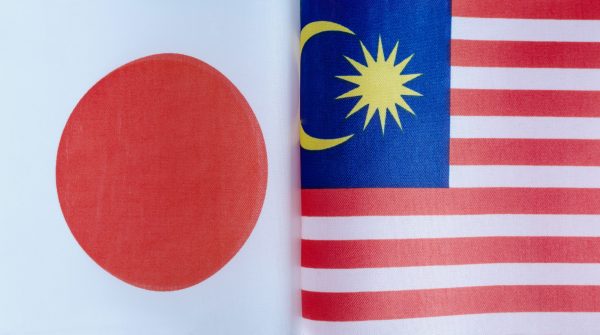Japan’s Prime Minister Ishiba Shigeru met today with his Malaysian counterpart Anwar Ibrahim, as he kicked off a tour of Southeast Asia that will also include a visit to Indonesia.
Speaking to the press after their meeting at the Perdana Putra Complex in Putrajaya, which houses Anwar’s office, the two leaders said that the discussions covered a range of economic and security issues.
“This bilateral meeting was one of the most extensive I’ve experienced, underscoring the seriousness with which Prime Minister Ishiba views Malaysia as a key partner,” Anwar said, according to the state news agency Bernama.
At the top of the agenda was trade and investment, with Anwar acknowledging the longstanding partnership between Japan and Malaysia’s state energy firm Petronas, and the importance of Japanese technology, including in carbon capture and storage, for his own country’s clean energy policy.
The talks also saw the two leaders agree to deepen their cooperation in education, disaster mitigation, and Palestinian development. Anwar said that Malaysia will also seek Japanese assistance in developing a non-radioactive rare earth element processing plant.
Prior to their meeting, the Malaysian Foreign Ministry said in a statement that Ishiba and Anwar were “expected to review the progress of Malaysia-Japan bilateral relations, particularly in trade and investment, human resource development, and energy cooperation.” They would also “exchange views on various regional and international issues of common interest including the situation in the Middle East.”
Ishiba’s four-day Southeast Asian tour, his first bilateral overseas trip since taking office in October, is aimed at strengthening defense and economic ties with a region that lies at the heart of intensifying U.S.-China competition.
Speaking to the press ahead of his departure for Malaysia, Ishiba said that his visits to Malaysia and Indonesia reflected his desire to keep his government’s attention on Southeast Asia due to its increasing geopolitical salience. “As the international community becomes increasingly uncertain, Japan wants to place greater value on our relations with Southeast Asia,” he told the press.
He added that Malaysia and Indonesia are both major energy suppliers for Japan, “and I will ask them to continue to provide us with a steady supply of energy.” He said that his government “will also continue to make contributions towards the remarkable economic development seen in both countries.”
Japan is among the most important of Malaysia’s economic partners; it is the fourth-largest foreign investor in Malaysia’s manufacturing sector and the country’s fourth-largest trading partner, with total trade valued at $34.41 billion in 2023, according to Bernama.
During his pre-departure briefing, Ishiba told reporters that “security matters” would also be on the agenda. Indeed, defense issues, particularly maritime security cooperation, were an important component of the Comprehensive Strategic Partnership (CSP) agreement that Japan and Malaysia signed in December 2023. As part of the CSP agreement, the two sides said that they “also confirmed their intention to strengthen further cooperation between the Japan Coast Guard and the Malaysian Maritime Enforcement Agency.”
Defense is also expected to dominate the discussions between Ishiba and Indonesian President Prabowo Subianto that are scheduled for Saturday. The two former defense ministers are expected to focus on military cooperation and arms transfers, and, according to the Associated Press, will sign a deal for the provision of Japanese high-speed patrol boats to the Indonesian coast guard.
Earlier this week, Defense Minister Sjafrie Sjamsoeddin hosted his Japanese counterpart Nakatani Gen for talks on potential sharing of military technology. “We hope this can lead to a meaningful technology transfer that will help Indonesia boost its military capacity,” Defense Ministry’s spokesperson Frega Ferdinand Wenas told the press, according to the state media agency Antara.
The fact that he opted to visit Malaysia and Indonesia for his first bilateral overseas trip suggests a desire to maintain the recent forward momentum of his predecessor Kishida Fumio, who engineered a considerable expansion of Japanese engagement with the region, particularly in the security realm.
Under Kishida, Tokyo announced the establishment in late 2023 of a Comprehensive Strategic Partnership with Vietnam, which included plans for maritime security cooperation, technology transfers, and the provision of Japanese defense equipment. Japan has also advanced its security cooperation with the Philippines, signing in July of last year a Reciprocal Access Agreement that will simplify the processes necessary for allowing troops from Japan and the Philippines to enter each other’s territory for joint exercises and other cooperative activities.
Japan is often seen as a partner of choice for Southeast Asian nations – large enough to provide considerable economic and security benefits, but not so large as to become a threat in its own right. In this respect, it has long functioned as a de facto counterweight to China’s rising economic and security presence in the region, where a number of governments share its consternation about Beijing’s increasingly belligerent assertion of maritime claims in the South and East China seas.











